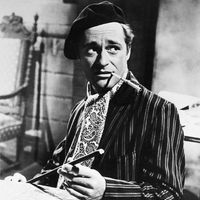-
Posts
3,675 -
Joined
-
Last visited
Content Type
Profiles
Forums
Events
Blogs
Everything posted by Stefan Wood
-
Now the preorder on amazon.co.uk is under 60 pounds.
-
All three discs are fantastic. This and the live date on NoBusiness are among my favorite releases this year.
- 6 replies
-
- Rodrigo Amado
- Manuel Mota
-
(and 3 more)
Tagged with:
-

Fricsay Complete DG Recordings vol. 1
Stefan Wood replied to bogdan101's topic in Classical Discussion
Was tempted, but there are other boxes that call my attention. I have his Bartok recordings on Audite -- they are excellent. -
I think he is 85.
-
http://www.reuters.com/article/2014/08/12/us-usa-crime-taylor-idUSKBN0GC1GA20140812
-
I have some used but fully functioning turntable cartridges for sale. They come with their original stylus, all are standard mount except where noted: Audio Technica 440mla - $150 Pickering XSV 3000 - $110 (w/Lp Gear replacement stylus) Sumiko Oyster - $60 Goldring Elektra - $35 Ortofon OMP 5e - $20 (plug in mount) Shipping is free in the CONUS. PM me for any questions, etc.
-
Sony is issuing a complete Pierre Monteux box in December.
-
Happy birthday!
-
Well, it at least has two versions of Rites and Firebird (mono and stereo) in it.
-
Silvestri is a good one. So is this, which is finally at its lowest price so far: $71 shipped from amazon uk. Or 45 pounds if you are in the UK. Lots of singular recordings here. How about this for non traditional?
-
A lot of these box sets go beyond the standard repertoire. A current example is the new Bernstein box. There are going to be a LOT of American and Latin American works that barely saw the light of cd. Quite a few of the EMI sets (Melos, Sargent, etc) deal with non standard material.
-

Valve Audio, South Africa - anybody know them?
Stefan Wood replied to AmirBagachelles's topic in Audio Talk
Perhaps. But the company would have to provide the program number, no? -

George Rochberg's critique of Schoenberg
Stefan Wood replied to sgcim's topic in Classical Discussion
Thanks for the details, much appreciated. -

George Rochberg's critique of Schoenberg
Stefan Wood replied to sgcim's topic in Classical Discussion
In what year he said that? After the death of his son? Did he, years later when his music had changed, keep that same opinion, or was there a retraction? We say a lot of dumb things. We also change our minds. -

George Rochberg's critique of Schoenberg
Stefan Wood replied to sgcim's topic in Classical Discussion
I too say "And???" Also, who ever said that Schoenberg said that we "should begin all over again"? Not Schoenberg, for one, AFAIK. As for "In each generation .. . the past is indelibly printed on our central nervous systems. Each of us is part of a vast physical, mental, spiritual web of previous lives, existences, modes of thoughts, behaviors and perceptions of actions and feelings reaching much further back than what we call history," well, for sure. The problem is that if we're talking about music, we're talking about a lot of different ways of making music over the course of time, while Rochberg, when writing music in the pastiche-of-styles mode that he more or less came to favor because he found Schoenberg's ways of music emotionality invalid, tended (to use a term that usually I don't like but that fits) "privilege" ways of making music that date back to, at the earliest, only the mid-18th Century. Also, the turning point for Rochberg, previously involved in writing music in what he felt was a Schoenberg-influenced manner, came by his own account after the death of his young son and his resulting inability to write music in his prior manner that in his view adequately expressed the intense emotions he felt about his young son's death and that he wanted to convey in music. Well, if that was how Rochberg felt, that's how he felt. But what a strange thing to say or imply of a composer, i.e. Schoenberg, whose music frequently was emotionally eruptive to an extreme. What, for example, of Schoenberg's String Trio, which scarifyingly conveys the composer's near-death experience from a stroke? And "Ewartung" isn't exactly a walk in the park. One could say that there is little or no Schoenberg music of any period that is, say, amiable, but then he wasn't an amiable guy. I should add that while I tend to dislike the often geschrie-heavy music that Rochberg wrote in the first flush of his conversion/reversion experience, I've recently discovered his expertly crafted piano music, which so far isn't that way at all. I think the context of when the quote was taken is important. His string quartets cyle, which I find quite remarkable, follow this struggle of breaking with the past, then reconciling with it -- the earlier ones having that geschrei, the latter ones quite different, almost lyrical. -
Yup. Preordered.
-
Can't bring up the link, but there is a second Bernstein Sony box. A whopping 80 discs of Concertos and Orchestral Works. You can preorder at amazon.co.uk (approx$" $100 shipped)
-
Someone might be breathlessly awaiting this set. I'll pass.... I'll wait for this to be heavily discounted:
-
Reading topics like this and on other forums makes me ask the same question, and then I realize -- oh, some of these guys are retired. I have bought some of the deals mentioned, with the idea that I am going to get to them in the near future. On vacation, or long weekends while I am doing some art work.
_forumlogo.png.a607ef20a6e0c299ab2aa6443aa1f32e.png)
